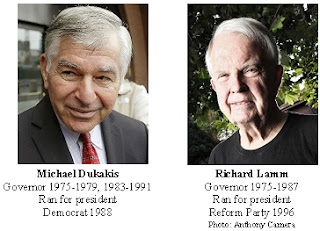While many of Europe’s leaders neither trust nor like Donald Trump, Japan’s Prime Minister, Shinzo Abe, has made himself one of President Trump’s few foreign confidantes and his country an indispensable ally in Asia. Abe and Trump have had four summits and dozens of phone conversations since President Trump’s election. In fact, Abe was Trump’s first foreign visitor at Trump Towers during the transition and his first foreign visitor to Mar-a-Lago during the famous cocktail table situation room visit (North Korea launched a missile that was discussed at a patio table with cell phones for lighting.)
Japan, like the rest of the world, was surprised when Trump was elected president. It led to concern. He had said a number of things during the campaign that were dramatically different from the positions of American foreign policy since the beginning of the Cold War. Trump was quoted as saying Japan and most of America’s defense allies were freeloading; that possibly it’s time for Japan to acquire its own nuclear weapons; that the trade relationship was unfair; and specifically, he disliked multi-lateral trade deals and didn’t like the Trans-Pacific Partnership.
The Japanese Foreign Ministry went into overdrive to help Abe develop a strategy to protect what Japan saw as a critical alliance and blunt the worst of the Trump policy reversals. Correctly, it was perceived that Trump had many opinions, but was ill-informed and lacked experience. Most importantly, Trump depends on personal relationships and must have in-person attention. Hence, Abe became the peripatetic traveler and Trump’s man in Asia.
Many of the worst aspects of Trump’s views were contained, but there are still many surprises. For Japan, a country that avoids bombast, Trump’s frequent threats and insults toward North Korea and Kim Jong-un are jarring. And, of course, for an ally that values consultations, the sudden acceptance of face-to-face negotiations with Kim Jong-un was a shock.
Ultimately, regardless of the stress and strain, Japan and America have significant interests that bring them together.
For Japan:
China. China is a tremendous market for trade, but unconstrained it’s a threat to regional stability and sovereignty. Japan needs a partner to assist in managing the Chinese relationship.
North Korea. America’s position on the Korean peninsula makes it the strongest participant in restraining North Korea and guiding peace negotiations.
Nuclear deterrent. Japan’s ultimate protection depends on the U.S. nuclear deterrent. The country’s defense-only use of military force is enshrined in its constitution. Its stance against developing nuclear weapons is reinforced by the memories of Hiroshima and even nuclear power generation is controversial following the recent disaster at the Fukushima power plant.
Trade. Japan is a trading nation. Asia is the economic area of the world likely to experience the most growth in the next century. Even without the U.S., the multilateral TPP agreement is valued.
Shared values. Japan and the U.S. share the values of democratic nations: rule of law, maintenance of democratic processes, and the regular and peaceful exchange of power. Protecting those values and the countries that share them is important to both nations.
Most importantly, Japan does not have many alternatives to its alliance with the U.S. to meet its basic strategic needs. And, America also must have a strong ally in the northern Pacific to achieve its goals.
America regularly has two carrier battle groups in the Pacific. Currently, the Ronald Reagan is stationed in Japan, but the island itself is the U.S.’s greatest military asset for projecting power in Asia. The U.S. has more than 70,000 troops and sailors stationed between the Japanese mainland and Okinawa. Japan is the U.S.’s staunchest and most valuable ally in the Pacific.
America’s foreign policy leadership has long recognized the importance of Asia, making it the largest military command. In fact, even President Obama, who is most noted for his restraint, advocated a “pivot” toward Asia in terms of focus and resources. But, the ambition and authoritarian shift in China and the closing in on deliverable nuclear weapons by North Korea make the relationship in 2018 even more critical.
Professor Floyd Ciruli
Director
Crossley Center for Public Opinion Research
Korbel School of International Studies
March 2018
 The American Association for Public Opinion Research (AAPOR) and the Crossley Center for Public Opinion Research at the Korbel School of International Studies at the University of Denver (DU) will sponsor a panel on marijuana, public opinion and legalization at the Denver Sheridan on May 15 at 5 PM. The panel will be open to both AAPOR members and the general community.
The American Association for Public Opinion Research (AAPOR) and the Crossley Center for Public Opinion Research at the Korbel School of International Studies at the University of Denver (DU) will sponsor a panel on marijuana, public opinion and legalization at the Denver Sheridan on May 15 at 5 PM. The panel will be open to both AAPOR members and the general community. Doug Schwartz, director of the Quinnipiac University Poll, will moderate a conversation among pollsters and legalization experts and policymakers, including David Metz, Partner and President of FM3 Research, and Floyd Ciruli, Director of the Crossley Center. The panel will describe how public opinions shaped the passage and implementation of marijuana legalization in Colorado and other states. They will also focus attention on the changed political climate from Washington D.C. and how it could affect public attitudes and the future of marijuana legalization in Colorado and around the country.
Doug Schwartz, director of the Quinnipiac University Poll, will moderate a conversation among pollsters and legalization experts and policymakers, including David Metz, Partner and President of FM3 Research, and Floyd Ciruli, Director of the Crossley Center. The panel will describe how public opinions shaped the passage and implementation of marijuana legalization in Colorado and other states. They will also focus attention on the changed political climate from Washington D.C. and how it could affect public attitudes and the future of marijuana legalization in Colorado and around the country.























